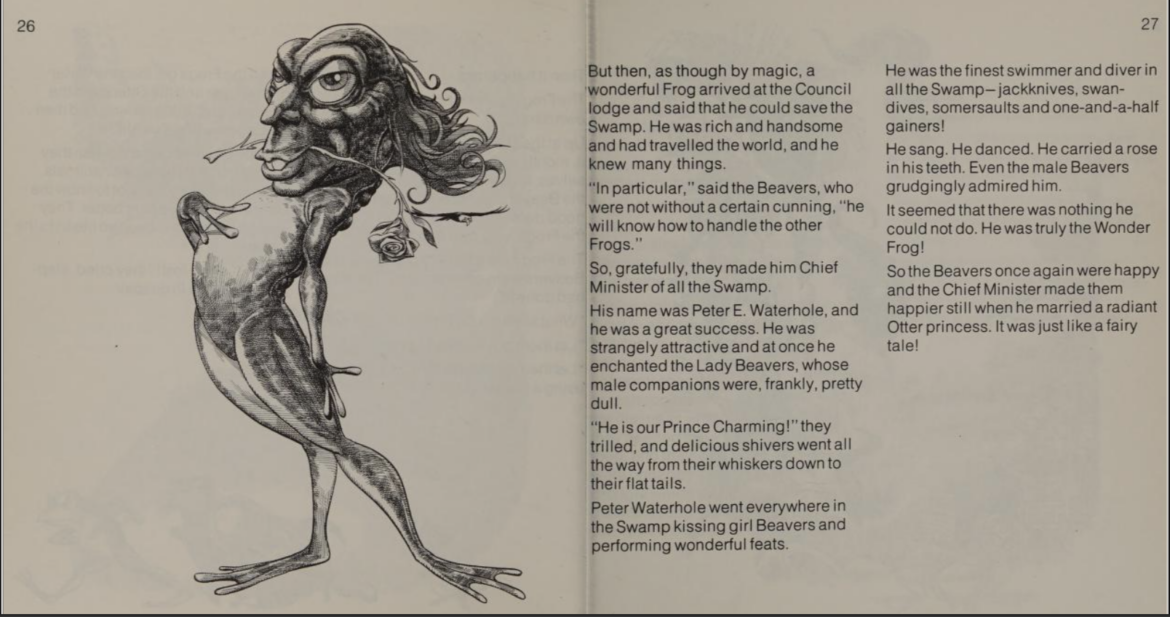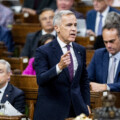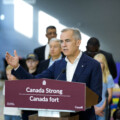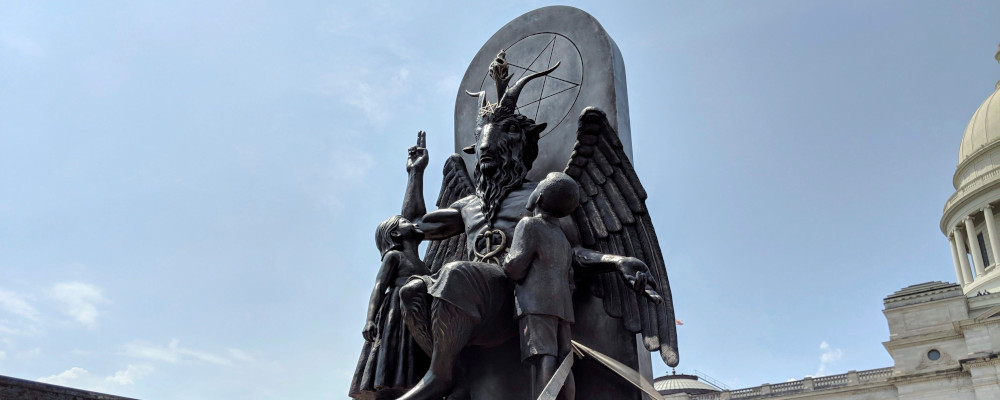The saintly editors here at The Hub have agreed to my request to produce one of my two monthly articles for the site as a monthly transatlantic diary. For those readers not familiar with the format, which is more common in British journalism, the diary is a grab bag of short items, sometimes on a common theme, but often not. In my case, what they have in common is that they are either too inconsequential to merit a full article or I can’t be bothered to come up with more than a knee-jerk reaction or a flip comment. This is December. It is also the last entry of this series.
In the first week of December I made one of my thrice-annual hop-skip-and-jumps from Oxford to Calgary to Vancouver Island. Plenty of catching up with scattered friends, plenty of good food in local favourites (you can read about some of them here), and blessedly few travel headaches, which these days counts as a Christmas miracle.
One thing there has not been plenty of is snow. None, in fact. Nary a flake, even in Calgary. Mais où sont les neiges d’antan? Beats me, but it’s a great line. So is Rossetti’s English translation—“But where are the snows of yesteryear?”—for which he invented the word “yesteryear.” It’s a keeper, though it leaves some holes in the linguistic calendar. Between yesterday and yesteryear, surely we need a yestermonth and a yesterweek? I have made a New Year’s resolution to introduce them, and as many other necessary neologisms as I can get past my editors.
* * *
Visiting my parents in North Saanich, I spent an afternoon blissfully lost in the second-hand bookstores of Sidney. Sadly, the used book store is going the way of the used book, or for that matter, the book. Not long ago, little Sidney boasted a dozen independent booksellers. This was mostly the work of Clive Tanner, who with his wife owned half of them and whose dream was to brand Sidney as “Booktown,” a west coast Hay-on-Wye.
Now the town is down to four bookstores, and if Sidney is known for anything, it’s for a spreading plague of former public servants enjoying early retirement. At 9 am, when the grey-ponytail men in muddy lycra and cycling cleats descend on the local coffee shops, there isn’t a seat or a bran muffin to be found within a five-mile radius.
Of the bookstores, Tanner’s remains, which is fine if you want week-old British magazines. The Haunted Bookshop changed hands a couple of years ago and the new owner has cluttered the shop with books from his other store stacked higgledy-piggledy on the floor and stuffed into shelves with minimal regard for the old hand-labelled sections. Inevitably, he’s also raised prices. Now comes news that Beacon Books will close at the end of January, its entire collection to be packed up and shipped off to Creston.
One of Beacon’s specialties was Canadiana, and on this trip I picked up a pristine copy of Stanley Burke’s The Day of the Glorious Revolution. Flipping through it, I wondered whether any book has ever been published for a more niche audience. As a boy, Roy Peterson’s animal caricatures formed my impression of figures like René Lévesque (a squatting frog smoking five cigarettes) and Robert Stanfield (a somnolent lobster). The cartoon introducing the elder Trudeau as the lubricious Peter E Waterhole is still the best Canadian political caricature I know. It belongs on a stamp.

I will miss Beacon Books, but I will shed no tears for their geriatric “Erotica” section, displayed shamelessly smack in the middle of the store like turkey-necked decolletage. Front and centre on this visit was a copy of Adrienne Clarkson’s memoirs, Heart Matters, which I hope the former GG won’t mind me saying is taking CanCon to a disconcerting extreme. Worse, it was perched above a stack of individually wrapped magazines that, on closer inspection, turned out to be old back issues of Maclean’s. Definitely a niche fetish.
* * *
Canadian and British politics provide more than enough fodder for a largely apolitical diary, so I rarely cast a critical eye on the American scene. But shortly after returning to Canada, I tweeted a gif applauding the toppling of a statue of Satan in the Iowa legislature.
I am often surprised by which of my off-hand tweets hit a nerve. This one elicited multiple responses from liberal fundamentalists warning me darkly that if we do not tolerate statues of demons in our legislatures, freedom of religion itself will be imperilled. “First they came for Satan…” I guess. I have two responses: first, the statue wasn’t erected for a religious purpose but by some juvenile atheists and rational humanists who enjoy trolling the Jeebus people; second, for those who don’t read closely, it was a statue of Satan. Technically, Baphomet, but the so-called Satanic Temple seems to think it’s Satan, whom they consider a symbol of the “Eternal Rebel,” “rational inquiry,” and “critical thinking.” Really. [HJA: This footnote originally misattributed the statue of Baphomet to the Church of Satan, rather than to the Satanic Temple. To give the devil his due, I beg my readers not to confuse the Satanic Temple (self-styled Satanists who claim not to believe in Satan and erect silly statues) with the Church of Satan (self-styled Satanists who claim not to believe in Satan and are silly in entirely different ways). I hope that clears things up.]
If our society can’t draw a principled distinction between benign expressions of religious pluralism and the literal embodiment of evil, then we might as well pack it up. My main takeaway from the episode is that there are a lot of very smart and earnest people out there who apparently do not believe in the Devil or in the objective reality of evil. To which I’d say: how do you explain all this? (Gestures vaguely at the world around us.)
* * *
Halfway through the month we learned that the Canadian population had ballooned by 430,000 in the third quarter of the year alone. The good news is that it was reported at all. For decades our cities have bulged like middle-age spread up mountainsides and into green belts and watersheds, and the media have treated it like the turn of the seasons: a natural phenomenon hardly worth noting, let alone critically.
Adding a population larger than Halifax or Surrey in three months is what happens when our Ministry of Finance cares only about the numerator, and our Ministry of Immigration cares only about the denominator. The numerator ticks up a little, so the finance minister can brag about rising GDP, while the denominator accelerates, so the immigration minister can pat himself on the back about what a swell, welcoming chap he is. Each department thinks it’s doing a bang-up job as long as it doesn’t look at the other’s work. Meanwhile, the fraction gets smaller and we all get a little poorer.
Finally, it seems Canadians are starting to do the math in their heads. Even some journalists—mostly liberal arts grads who haven’t seen a quotient since high school—appear to have figured out how to calculate per capita income, which declined by 4.4 percent during the same quarter that the population jumped. Accepting we have a problem is a welcome first step. Now we just need someone to, you know, actually do something about it.
* * *
Boxing Day means two things to me: the World Juniors and hot turkey sandwiches. With Canada playing at 5:30 am local time, I skipped the hockey but made up for it with the sandwiches, a tradition for which Christmas dinner itself is but a prelude. This year’s were the tallest yet, with layers of (from top to bottom): gravy, turkey, cranberry sauce, mixed root vegetables, Brussels sprouts and bacon, stuffing, mashed potatoes, cranberry relish, butter, and toast. Any higher and I will need toothpicks, and maybe a planning permit.
As for the World Juniors, there was a time when I would have been up in the dark, fizzing with anticipation. Maybe it’s age, but this year I’m going to wait for the quarterfinals—and a game at a civilised hour—to tune in.NB: This was written before Canada’s quarterfinal loss. My reaction vacillates between disgust and the smug fall-back available to all Canadians of assuming (with good reason) that if both teams had all their eligible U20 players, we’d have smoked the Czechs. In the past it seemed there was almost always an early grudge match with either the Russians or the Americans to liven up the first round, but with the Russians banned and the Americans in the other bracket, this year’s round-robin felt like it missed the old spark. I know the Swedes and Finns can be worthy rivals, but it’s just not the same.
Speaking of Russia, I don’t care if we let them play or not, or if we make them compete under a fake team name or wear fake moustaches, but is it too much to ask for a little consistency? Looking at the IIFC website, I see the People’s Republic of China competed in the Division II, Group A tourney earlier this month despite currently occupying one country (Tibet), menacing another (Taiwan), and engaging in multiple genocides (Uyghurs, Tibetans, Falun Gong, probably a few others). And if that weren’t bad enough, both Iran and North Korea are competing in Division III, Group B of next year’s men’s world championship. I know complaining about hypocrisy in international sport is like moaning about corruption in municipal politics, but come on.

* * *
After Christmas, a distinguished national journalist invited me to his house for blueberry waffles, and to impersonate minor European royalty for the edification (and, as it happened, to the bewilderment) of his young daughters. I chose as my role the Hereditary Grand Duke of Luxembourg, and the family duly provided me with a royal blue sash to wear under my blazer. With a head crammed full of duchy trivia, I presented myself at the door, where I was greeted by a well-rehearsed juvenile receiving line. I have no idea if the children bought the act or not, but my ersatz Poirot accent proved unnecessary as the family thought my genuine Canadian Dainty was unbelievable enough. The question now is how to put my newfound knowledge of the Bourbon-Parma and De Lannoy/Delano family trees to profitable use. It is one of my mottos that “no knowledge is ever wasted,” but this may try the maxim.
* * *
The Hub will shortly publish my predictions for 2024 as part of its year-end round-up. I am not concerned that people will find it too bleak—it’s impossible to be pessimistic enough about the future—but I do hope people don’t take it in the wrong spirit. People who read it and don’t know me might assume the prospect of impending doom depresses me. Quite the contrary: I am filled with rapturous defiance. Bring it on. I have no doubt that good will triumph in the end, even if it will be in the next world rather than this one.
Besides, despair is worse than a sin, it’s boring. As Trollope knew: “The well-educated, widely-read Conservative, who is well assured that all good things are gradually being brought to an end by the voice of the people, is generally the pleasantest man to be met.” I make no great claims to education or erudition, but anything that might make me more pleasant is worth trying, so I am determined to banish boredom and despair and meet disaster with a bottle of vintage champagne and a Bronx cheer.
And that’s also why I’m ending this diary before it becomes even more boring. In yestermonth’s entry, I said this would be the last, and so it is. Twelve months, twelve entries. Good enough for the Apostles and the Tribes of Israel, and surely good enough for my odd, disruptive life. Thank you to everyone who read it.
Recommended for You

Like the Blue Jays, Carney’s first budget falls just short

The UCP empowered Albertans to have their say. Now it may be coming back to bite them

‘This is significant’: Hub Politics on Carney’s disappointing budget being overshadowed by a dramatic floor crossing

‘Bet against the president winning’: Could an American Supreme Court ruling save Canadian trade?




